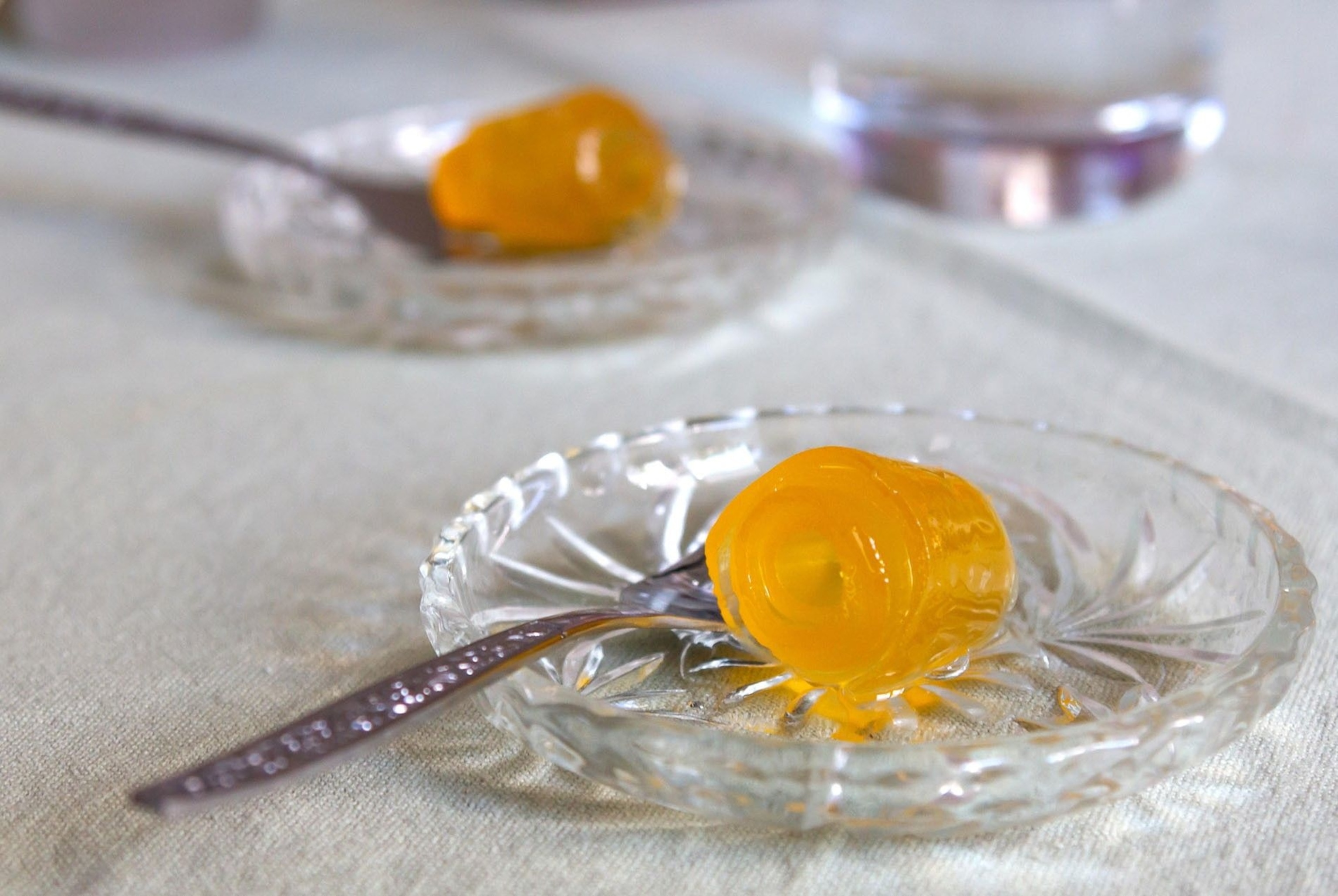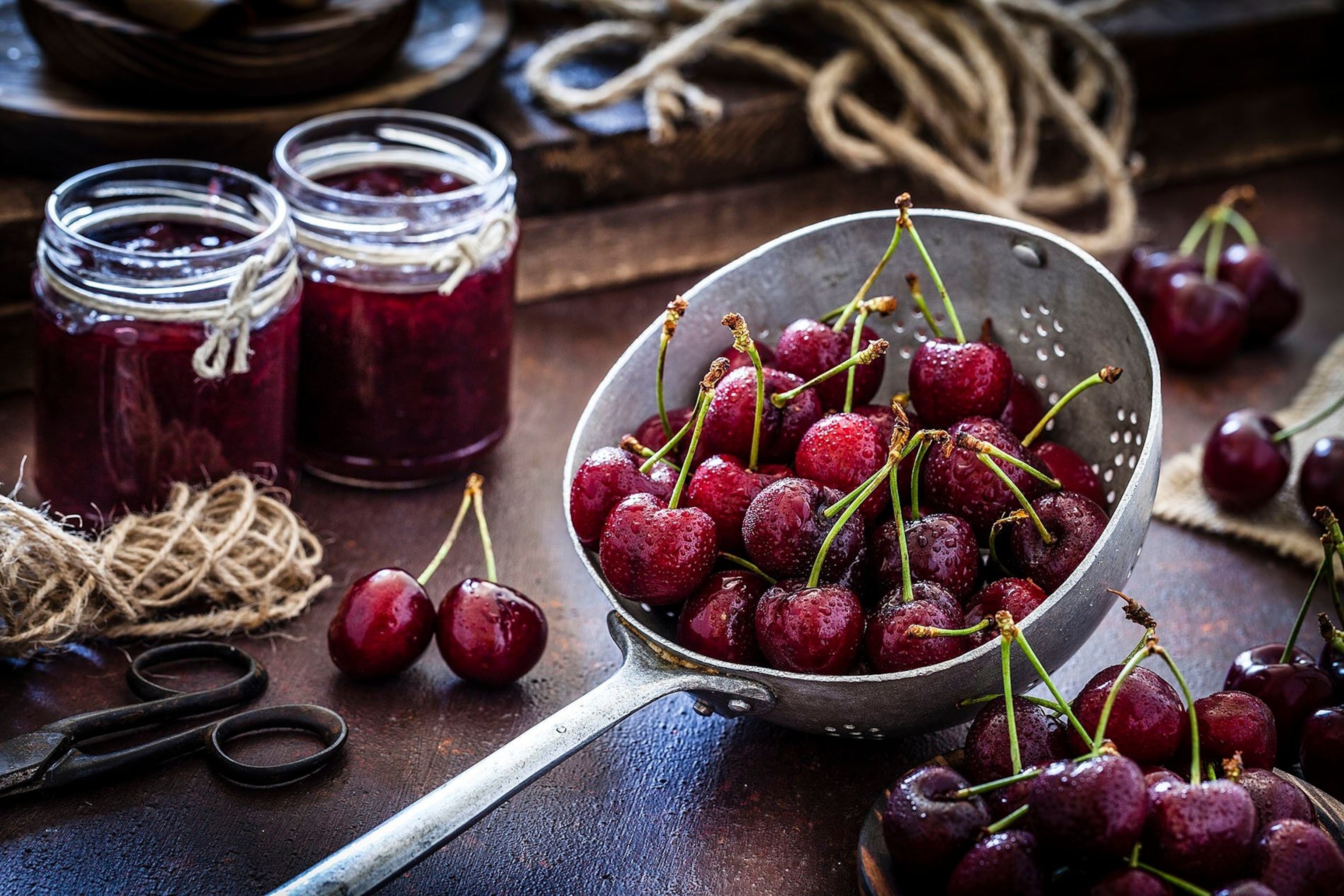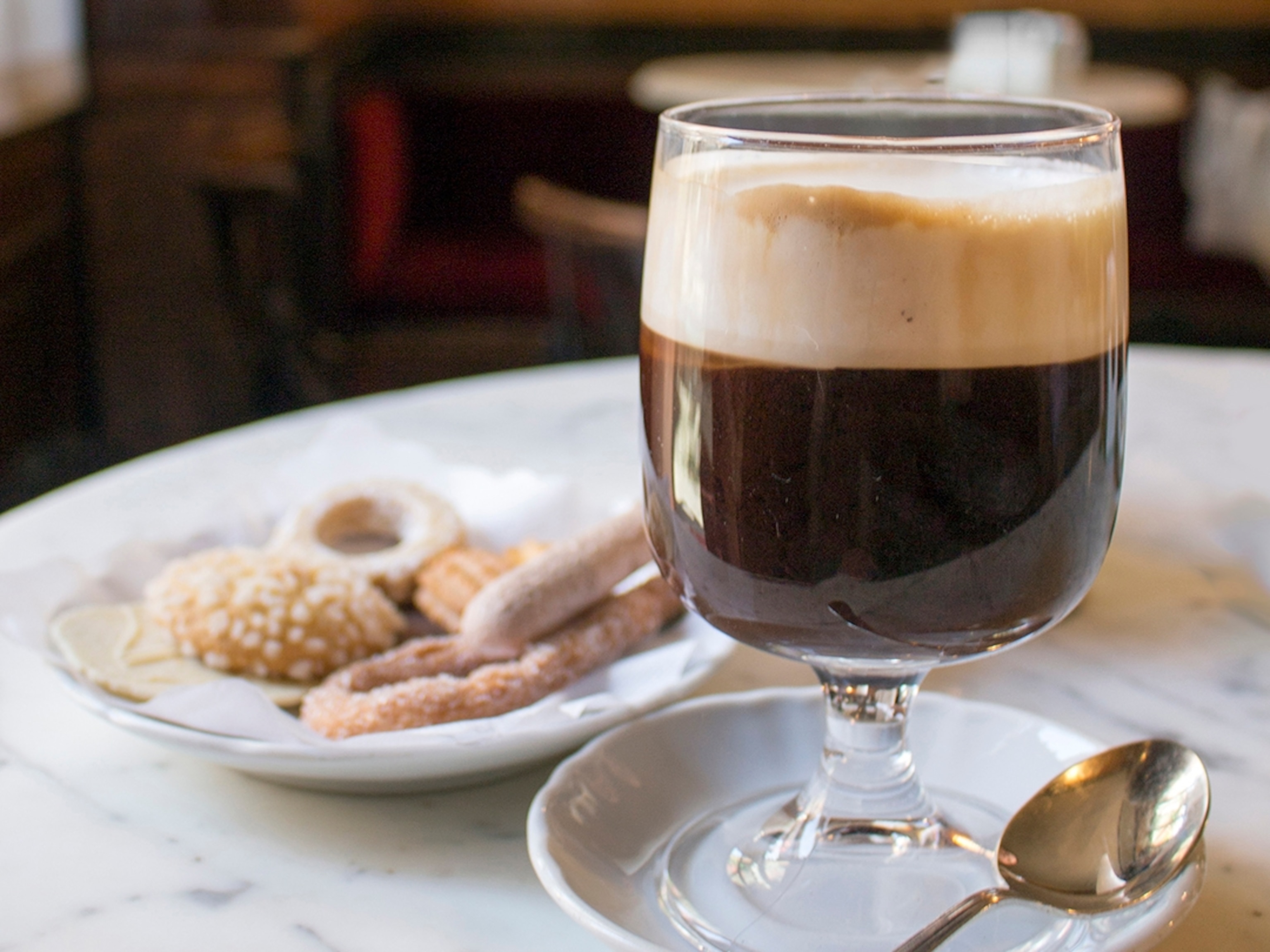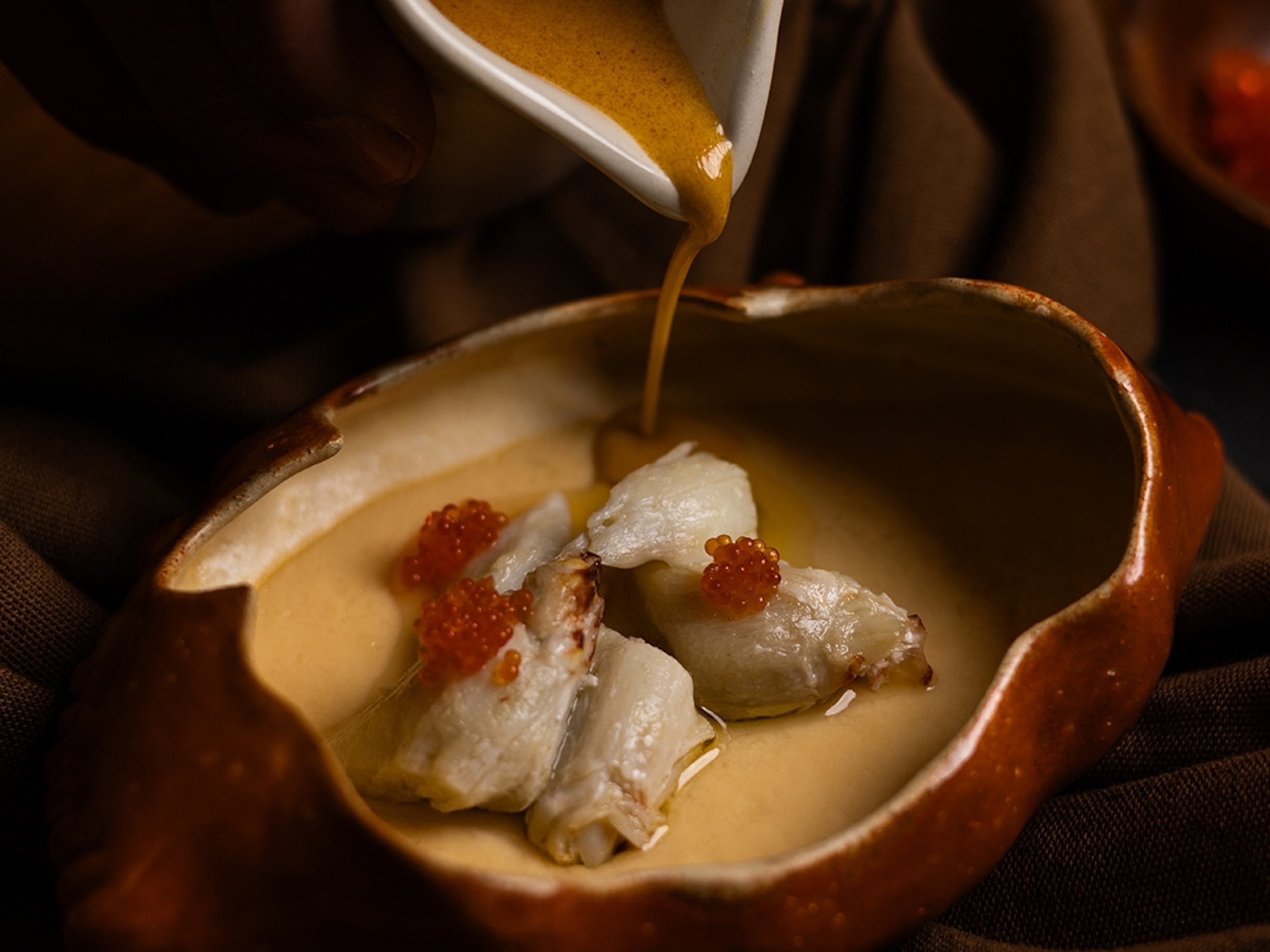
Meet the makers: the Greek co-op putting traditional spoon sweets on the map
In Vizitsa, one of the Greek villages that have dotted Mount Pelion’s slopes since antiquity, the women-run Esperides Co-operative uses the region's abundant orchards to create traditional Greek spoon sweets with a secret local ingredient.
Greece’s Mount Pelion rises sharply on the seashore like a windbreaker, sheltering the plains of Thessaly from the northeastlies that funnel their way through the Dardanelles and whizz down the Aegean. The guaranteed rainfall they bring has turned Pelion into the orchard of Greece: apples, peaches, cherries, oranges, figs — there’s not much that won’t grow on the mountain’s fertile earth.
In Vizitsa, one of the villages that have dotted Pelion’s slopes since antiquity, Theodora Kleitou, president of the Esperides co-op, shows me what happens to this overabundance of fruit. Among the pots of jam and marmalade — some with an unexpected twist (figs with ginger or tomato with anise) — are jars of traditional spoon sweets. The name refers to the fact that they’re so overwhelmingly syrupy they can only be eaten one spoonful at a time, often tempered by a dollop of yoghurt. They’re what guests are offered as a treat in a village household.

“It was the economic crisis that forced us to found the co-op”, says Theodora. “Seven of us, all women, established Esperides in December 2011. We didn’t ask for any bank loans or any state money. We ploughed our own savings into the business. The council let us have this building, which was an old school, on condition that we renovate it. We’ve done that and continue its upkeep.”
The good news is the co-op shop is thriving, attracting a steady stream of buyers lured by the quality and low prices of the produce (which starts at around €12/11 per kg). It naturally helps that Vizitsa is one of the most attractive villages on Pelion and that most tourist buses stop here.
Deeper inside the warehouse, Fotini Bellou, another co-op member, is pitting sour cherries. She started early and her shift will last as long as it takes to process the 20kg she’s brought from her own orchard. “First you wash the cherries and stone them,” she explains. “Then you add an equal weight of sugar (1kg to 1kg), one spoonful of lemon juice plus two glasses of water. Boil in high heat for 30 minutes; longer or at lower heat and you’ll ruin the colour.”
As simple as that? Well, there’s just one more key ingredient — some local flowers. “The secret ingredient is arbaroriza — sweet-scented pelargonium. It grows wild on the mountain.”
Fotini offers me some freshly made sour cherry. The sudden sugar rush shakes me with a jolt like a shot of caffeine. Now, how many jars can I carry back to London?

Three places to try traditional spoon sweets
1. Psomotyri delicatessen at the Petralona Metro Station in Athens is the only shop in the capital that stocks products from the Esperides co-op; there’s also a branch in central Thessaloniki.
2. Order online from Papazacharias. As the website is in Greek, another option is to order via email at info@papazacharias.gr. Ask for ‘glyka koutaliou’ (Greek for ‘spoon sweets’)’ which are sold in 5kg tubs.
3. Closer to home, Ergon Deli, in London’s Mayfair, is a supplier of Greek traditional delicacies, including spoon sweets, which cost £8-£12.
In your pantry
Traditional jams: Greek independent producers eschew pectin and preservatives in jams relying on the added sugar to fight decay. Belissimo is an online shop that offers homemade jams from the island of Lesbos. The tangerine and fig jams are highly recommended, as is the island’s distinctive green-olive-and-orange marmalade (£4.50).
Thyme honey: No aroma well whisk you away to Greece quicker than the sweet smell of wild thyme. Its nectar is the local honey bee’s favourite, and villages all over the country produce honey from bees that have feasted on its tiny purple blossoms. You can buy artisan Greek honey (£7.99) in London from Odyssea, based in Leyton.
Mastiha: The sweet resin of the mastic tree is a speciality of the Greek island of Chios. Its delicate pine aroma is popular throughout Levantine cuisine, guaranteeing the island’s prosperity through the ages. One of its most popular uses is as a flavouring for a digestif; buy a 30%-proof bottle (£31.75) from the Whisky Exchange.
Find us on social media
Facebook | Instagram | Twitter




